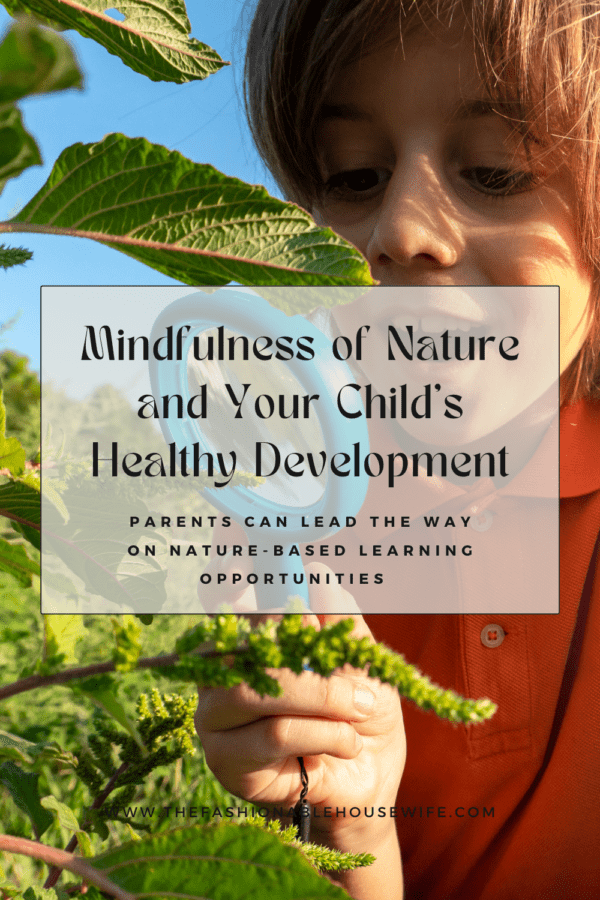
Being in a relationship with nature has always been essential to the health and well-being of all humans since the beginning of time. We can notice, when we spend time in nature, we feel better. We can breathe a bit deeper, think a bit more clearly, feel a bit calmer and more grounded, or joyful and free, ultimately connected to life itself. As such, it is clear, through scientific research as well as by tuning into our own inner intuitions, connecting with nature and the natural world offers physical, mental, and emotional benefits, essential to living a well-balanced life.
It is true that building a strong relationship with nature can begin at any age. Research affirms that early childhood is the optimal time to begin nurturing close connections and experiences in nature as a way to develop a love and appreciation of the natural world and strengthen your child’s overall health and well-being. As parents, developing strong connections to nature for yourself and your child can be a natural remedy to the stresses of modern living, where we have an ever-increasing tendency to rely on technology, digitized, and sedentary indoor living habits. Research even tells us that the decrease over time in children’s access to nature has led to nature deprivation, a term coined by Richard Louv.
The good news is there is a remedy for this deepening disconnect and nature deficit: Making space for Vitamin N, Nature, in our everyday lives. As parents, whether at home or in partnership with our children’s teachers at school, we can advocate for the importance of nature, and there are many large and small ways we can incorporate nature everyday into our children’s and our own lives.
Research has shown the many short- and long-term benefits of nature-based learning, or outdoor education, for children’s physical, cognitive, emotional and social development. Outdoor learning environments, or even the inclusion of natural elements indoors, provides a diverse range of experiences for children to explore, encouraging them to use their imagination, engage in appropriate risk-taking and problem-solving activities, build cooperative relationships with others and the natural world, develop key motor skills, and expand the boundaries of their knowledge through independent learning and observation.
At Trust for Learning — a philanthropic partnership dedicated to supporting high-quality, early learning experiences for all children — we recognize nature-based learning as an important part of the core principles of ideal learning, which are essential for quality and life-affirming early childhood care and education for all children. Our new report, Nurturing All Children in Nature: Ideal Learning in the Natural World, highlights some of the amazing work being done around the country to center the importance of nature and outdoor learning in the lives of young children. In the report, we provide practical ideas and strategies for parents, homeschoolers, and educators to implement nature-based learning and ideal nature experiences for every budget in your own homes and classrooms.
Whether we are going for a walk in nature in autumn, planting fruits and flowers in the garden bed in spring, bringing elements of the natural world indoors in winter, jumping in puddles on rainy days, or celebrating the wonder and beauty of the seasons all year round, nature experiences can and should enrich and enliven everyday life at home and at school.
Lynn Turner is a native Washingtonian, wife, and mother of two children. She represents the Waldorf Early Childhood Association of North America on the Ideal Learning Roundtable.




